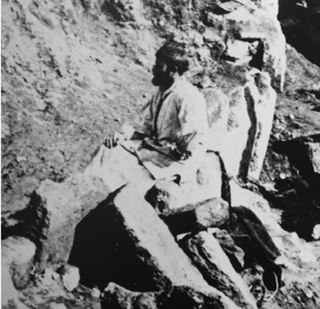This article needs additional citations for verification .(December 2009) |
| |||
|---|---|---|---|
| +... | |||
Below are notable events in archaeology that occurred in 1890.
This article needs additional citations for verification .(December 2009) |
| |||
|---|---|---|---|
| +... | |||
Below are notable events in archaeology that occurred in 1890.
Johann Ludwig Heinrich Julius Schliemann was a German businessman and an influential amateur archaeologist. He was an advocate of the historicity of places mentioned in the works of Homer and an archaeological excavator of Hisarlik, now presumed to be the site of Troy, along with the Mycenaean sites Mycenae and Tiryns. His work lent weight to the idea that Homer's Iliad reflects historical events. Schliemann's excavation of nine layers of archaeological remains has been criticized as destructive of significant historical artefacts, including the layer that is believed to be the Homeric Troy.

Dame Kathleen Mary Kenyon, was a British archaeologist of Neolithic culture in the Fertile Crescent. She led excavations of Tell es-Sultan, the site of ancient Jericho, from 1952 to 1958, and has been called one of the most influential archaeologists of the 20th century. She was Principal of St Hugh's College, Oxford, from 1962 to 1973, having undertaken her own studies at Somerville College, Oxford.

Sir John Hubert Marshall was an English archaeologist who was Director-General of the Archaeological Survey of India from 1902 to 1928. He oversaw the excavations of Harappa and Mohenjo Daro, two of the main cities that comprise the Indus Valley Civilisation.

Wilhelm Dörpfeld was a German architect and archaeologist, a pioneer of stratigraphic excavation and precise graphical documentation of archaeological projects. He is famous for his work on Bronze Age sites around the Mediterranean, such as Tiryns and Hisarlik, where he continued Heinrich Schliemann's excavations. Like Schliemann, Dörpfeld was an advocate of the historical reality of places mentioned in the works of Homer. While the details of his claims regarding locations mentioned in Homer's writings are not considered accurate by later archaeologists, his fundamental idea that they correspond to real places is accepted. Thus, his work greatly contributed to not only scientific techniques and study of these historically significant sites but also a renewed public interest in the culture and the mythology of Ancient Greece.
Below are notable events in archaeology that occurred in 1898.
The year 1999 in archaeology involved some significant events.
Below are notable events in archaeology that occurred in 1888.
The year 1976 in archaeology involved some significant events.
Below are notable events in archaeology that occurred in 1880.
Below are notable events in archaeology that occurred in 1900.
Below are notable events in archaeology that occurred in 1871.
Below are notable events in archaeology that occurred in 1896.
Below are notable events in archaeology that occurred in 1947.
The year 1954 in archaeology involved some significant events.
Below are notable events in archaeology that occurred in 1928.
Below are notable events in archaeology that occurred in 1845.
Below are notable events in archaeology that occurred in 1945.

Veronica Seton-Williams FSA, was a British-Australian archaeologist who excavated in Egypt and the Near East, as well as in Britain. She studied history and political science at the University of Melbourne and then Egyptology and prehistory at University College London.

Modern archaeology is the discipline of archaeology which contributes to excavations.

Panagiotis Stamatakis was a Greek archaeologist. He is noted particularly for his role in supervising the excavations of Heinrich Schliemann at Mycenae in 1876, and his role in recording and preserving the archaeological remains at the site.